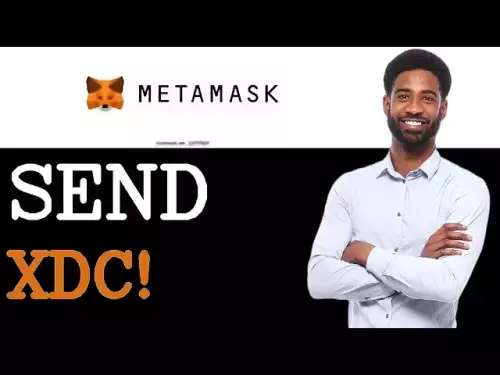 |
|
 |
|
 |
|
 |
|
 |
|
 |
|
 |
|
 |
|
 |
|
 |
|
 |
|
 |
|
 |
|
 |
|
 |
|

ChatGPT: Unveiling the Post-Exploitation Risks and Mitigation Strategies
The integration of artificial intelligence (AI) into our daily routines has brought forth a paradigm shift in how we interact with technology. However, with the advent of powerful language models like ChatGPT, security researchers are actively scrutinizing the potential implications and vulnerabilities that arise from their usage. In this comprehensive analysis, we delving deeper into the post-exploitation risks associated with ChatGPT, shedding light on the techniques attackers could employ to gain persistent access to user data and manipulate application behavior.
The Cross-Site Scripting (XSS) Vulnerability
In a previous investigation, our team uncovered two Cross-Site Scripting (XSS) vulnerabilities in ChatGPT. These vulnerabilities allowed a malicious actor to exploit the /api/auth/session endpoint, exfiltrating the user's JWT access token and gaining unauthorized access to their account. While the limited validity period of the access token mitigates the risk of permanent account compromise, it underscores the need for robust security measures to prevent such attacks in the first place.
Persistent Access through Custom Instructions
Custom Instructions in ChatGPT offer users the ability to set persistent contexts for customized conversations. However, this feature could pose security risks, including Stored Prompt Injection. Attackers could leverage XSS vulnerabilities or manipulate custom instructions to alter ChatGPT's responses, potentially facilitating misinformation dissemination, phishing, scams, and the theft of sensitive data. Notably, this manipulative influence could persist even after the user's session token has expired, underscoring the threat of long-term, unauthorized access and control.
Recent Mitigations and the Bypass
In response to the identified vulnerabilities, OpenAI has implemented measures to mitigate the risk of prompt injection attacks. The "browser tool" and markdown image rendering are now only permitted when the URL has been previously present in the conversation. This aims to prevent attackers from embedding dynamic, sensitive data within the URL query parameter or path.
However, our testing revealed a bypass technique that allows attackers to circumvent these restrictions. By exploiting the /backend-api/conversation/{uuid}/url_safe?url={url} endpoint, attackers can validate client-side URLs in ChatGPT responses and identify whether a specific string, including custom instructions, is present within the conversation text. This bypass opens up avenues for attackers to continue exfiltrating information despite the implemented mitigations.
Exfiltration Techniques Despite Mitigations
Despite OpenAI's efforts to mitigate information exfiltration, we identified several techniques that attackers could still employ:
Static URLs for Each Character:
Attackers could encode sensitive data into static URLs, creating a unique URL for each character they wish to exfiltrate. By using ChatGPT to generate images for each character and observing the order in which the requests are received, attackers can piece together the data on their server.
One Long Static URL:
Alternatively, attackers could use a single long static URL and ask ChatGPT to create a markdown image up to the character they wish to leak. This approach reduces the number of prompt characters required but may be slower for ChatGPT to render.
Using Domain Patterns:
The fastest method with the least prompt character requirement is using custom top-level domains. However, this method incurs a cost, as each domain would need to be purchased. Attackers could use a custom top-level domain for each character to create distinctive badges that link to the sensitive data.
Other Attack Vectors
Beyond the aforementioned techniques, attackers may also explore the potential for Stored Prompt Injection gadgets within ChatGPTs and the recently introduced ChatGPT memory. These areas could provide additional avenues for exploitation and unauthorized access.
OpenAI's Response and Future Mitigation Strategies
OpenAI is actively working to address the identified vulnerabilities and improve the security of ChatGPT. While the implemented mitigations have made exfiltration more challenging, attackers continue to devise bypass techniques. The ongoing arms race between attackers and defenders highlights the need for continuous monitoring and adaptation of security measures.
Conclusion
The integration of AI into our lives brings forth both opportunities and challenges. While ChatGPT and other language models offer immense potential, it is crucial to remain vigilant of the potential security risks they introduce. By understanding the post-exploitation techniques that attackers could employ, we can develop robust countermeasures and ensure the integrity and security of our systems. As the threat landscape evolves, organizations must prioritize security awareness, adopt best practices, and collaborate with researchers to mitigate the evolving risks associated with AI-powered technologies.
Haftungsausschluss:info@kdj.com
Die bereitgestellten Informationen stellen keine Handelsberatung dar. kdj.com übernimmt keine Verantwortung für Investitionen, die auf der Grundlage der in diesem Artikel bereitgestellten Informationen getätigt werden. Kryptowährungen sind sehr volatil und es wird dringend empfohlen, nach gründlicher Recherche mit Vorsicht zu investieren!
Wenn Sie glauben, dass der auf dieser Website verwendete Inhalt Ihr Urheberrecht verletzt, kontaktieren Sie uns bitte umgehend (info@kdj.com) und wir werden ihn umgehend löschen.
-

-

- Apple, Bitcoin und iMessage: Eine neue Ära der Krypto -Zugänglichkeit?
- Sep 26, 2025 at 12:02 am
- Erforschen Sie, wie die Integration von Macadamia Wallet von Bitcoin die Einführung von Bitcoin revolutionieren könnte, Krypto mit der alltäglichen Kommunikation verschmelzen und die Zukunft der Zahlungen möglicherweise neu verändern kann.
-

- Crypto Presales: Entsperren Sie 2025 Gewinne mit frühen Investitionen
- Sep 26, 2025 at 12:00 am
- Tauchen Sie in die Welt von Crypto Presales ein und konzentriert sich auf Möglichkeiten für 2025 Gewinne durch frühe Investitionen. Erforschen Sie Trends, Erkenntnisse und potenzielle Projekte mit hoher Rendite.
-

-

- Hyperion Defis Hype -Token -Akquisition: ein mutiger Schritt oder ein riskantes Glücksspiel?
- Sep 25, 2025 at 11:58 pm
- Hyperion Defis strategischer Erwerb von Hype-Token-Sparks-Debatten: Ist es eine visionäre Investition oder eine hohe Einsatzwette auf die volatile Welt der Blockchains der Schicht 1?
-

- Plasma -Hauptnetz -Beta geht mit XPL Token: A New York Minute über die neuesten Stablecoins
- Sep 25, 2025 at 11:54 pm
- Plasma, eine Schicht -1 -Blockchain für Stablecoins, startet sein Mainnet Beta und XPL Token. Von Branchengiganten unterstützt, zielt es darauf ab, Defi- und Token -Vermögenswerte zu revolutionieren.
-

-

-

- Hugs Crypto Investment: Warum dieser Whitelist ein Muss für 2025 ist
- Sep 25, 2025 at 11:45 pm
- Milk & Mokkas $ Hugs Token definiert Meme-Münzen mit seiner starken Gemeinschaft neu, die Belohnungen und spielgesteuerte Verbrennungen abhält. Der Whitelist ist geöffnet und es ist Ihr Ticket für einen potenziellen Ausbruch im Jahr 2025.
























![[Paikoin] Pi Coin -Paikoins "Dae" Crash?! .. Es gab einen echten Verbrecher .. / wie man den Bergbau #Paikoin beschleunigt [Paikoin] Pi Coin -Paikoins "Dae" Crash?! .. Es gab einen echten Verbrecher .. / wie man den Bergbau #Paikoin beschleunigt](/uploads/2025/09/25/cryptocurrencies-news/videos/paikoin-pi-coin-paikoin-dae-crash-real-criminal-accelerate-mining-paikoin/68d543efc52f4_image_500_375.webp)





































